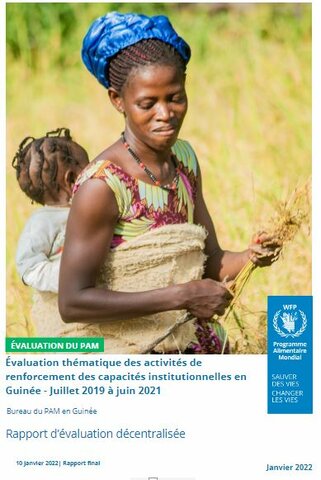
The evaluation was designed according to the following international criteria: relevance, effectiveness, efficiency, impact, sustainability and coherence.
Overarching evaluation questions included:
- To what extent is WFP's support relevant to the needs of the most vulnerable populations and appropriate for achieving the planned results?
- To what extent have WFP's actions contributed to strengthening institutional capacities and the capacities of other actors?
- To what extent have the implementation modalities of WFP interventions influenced the achievement of significant results?
- To what extent does WFP contribute to meeting the basic needs of the most vulnerable households?
- To what extent will the achievements of WFP support be sustained in the long term?
- To what extent does the support to institutional capacity building take into account humanitarian considerations, principles and norms and contribute to coherence between the interventions of different actors?
Overaching findings include the following:
The evaluation confirmed that most of WFP's activities are relevant and effective at the individual level. However, at the organizational level, activities could be further developed, including through a stronger financial base. In terms of the enabling environment, WFP has not been able to implement activities. In addition to facing socio-political instability, the lack of financial resources would be the main limiting factor for WFP to develop its strategic approach to national capacity building. Another limitation is the lack of internal capacity at the WFP level to adequately carry out this strategic approach. These three elements have directly affected the implementation of capacity development activities, limiting needs analyses in the different activities, preventing work at the enabling environment level, reducing support at the organizational level and limiting systemic monitoring of programmes. However, individual capacity building activities have resulted in greater ownership by beneficiaries. The evaluation also confirmed that all activities implemented by WFP are gender sensitive.
Key recommendations from the evaluation are:
R1: Strengthen the human resource capacity.
R2: Adopt a developmental approach.
R3: Ensure the inclusion of gender, equity and inclusion issues.
R4: Engage in clear communication with donors.
R5: Adopt a systemic methodology in the approach to national capacity building.
R6: Strengthen the monitoring and evaluation system.
